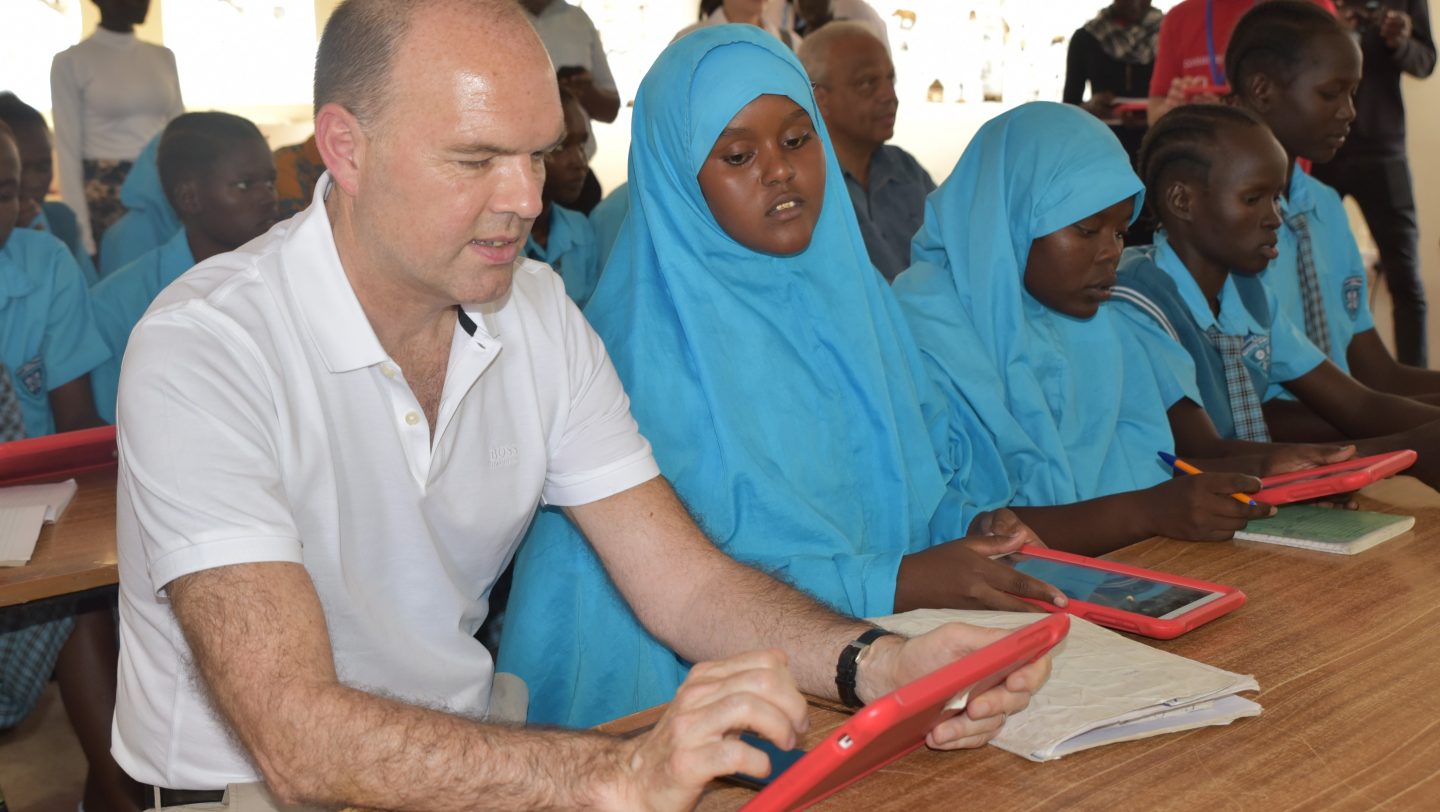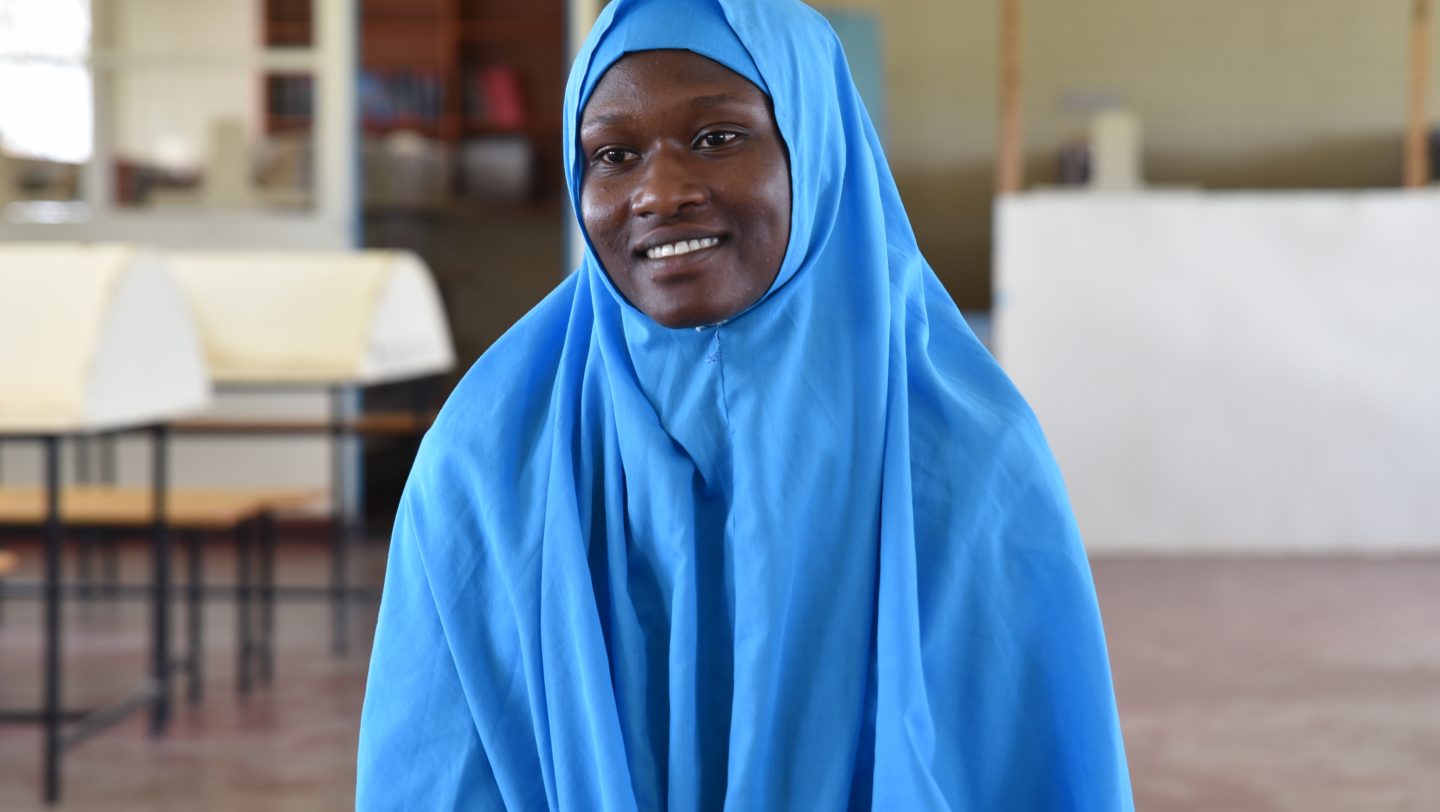Vodafone Foundation Sponsored Instant Network Schools are Transforming Refugee Lives in Kenya.
Closing the gap in refugee education is becoming more urgent and UNHCR has called for partners and Governments to step-up their support to refugee children education.
Students from different schools study using tablets at the community library in Kakuma. The facility is equipped with internet to enable students access digital education platforms. ©UNHCR/Caroline Opile
Recently, UNHCR released it’s annual education report annual, ‘’Stepping Up: Refugee Education in Crisis’’ which showed more than half of refugee children are out of school globally.
Barriers to schooling for refugee become harder to overcome as they grow older with only 3% accessing higher education against a global average of 37%. Closing the gap in refugee education is becoming more urgent and UNHCR has called for partners and Governments to step-up their support to refugee children education.
One of the partners that has stepped in the past few years is the Vodafone Group through it’s foundation supported Instant Network School(INS) implemented in Kenya’s Kakuma and Dadaab refugee camp as well 3 other countries in the region.

One of the instant network schools refugee tutors at Morneau Shepell Girls Secondary School. ©UNHCR/Caroline Opile
The Instant Classroom, a turnkey plug-and-play solution in one box to set up connected and digital classrooms in minutes provide a holistic solution to transform an existing classroom into an innovation hub for learning – complete with a local network; internet connectivity; sustainable solar power; a classroom kit that includes 25 tablets, a laptop, a projector and speaker; localized digital content; and a robust teacher training programme.
On 29 July this year, the Vodafone Group CEO, Mr. Nicholas Reed visited Kakuma along with with the UNHCR Country Representative, Ms. Fathiaa Abdalla, Vodafone Foundation and Safaricom Foundation Directors visited Kakuma camp to meet with the students and teachers benefiting from the project.
“Vodafone Foundation Instant Network Schools project has strategic impact and has brought transformation to the lives of refugees,” a gratified Nicholas Read said.
The CEO visited the Morneau Sheppel Girls Boarding Secondary School, one of the six INS schools and centers spread across the camp, and interacted with girls taking a science lesson. It was a different kind of learning that was technology mediated and students using a tablet instead of the usual chalk and board arrangement. The students seemed quite engaged and keen.
Mr. Nicholas keenly followed the science class through the tablet and occasionally glancing at the enthusiastic students in the class. Other team members followed suit and sat in the tiny desks, to gain insight on what it means to have an Instant Network School in a refugee camp.
“Vodafone Foundation Instant Network Schools project has strategic impact and has brought transformation to the lives of refugees,” a gratified Nicholas Read said.
In the corner of the class, 20-year-old Alla Abas from Sudan is one of the students. Alla arrived in Kakuma camp in 2014 when she was 15 years old. She admits it was difficult to communicate because she only understood Arabic language but taught herself English and Swahili. She initially joined Kakuma Secondary School, but later applied for slots that were available at Morneau Shepell Secondary School and got an admission. She notes that the Instant School Network (INS) provides students with digital learning platforms that has tremendously changed her life.
According to Mohamed Hure, the UNHCR Associate Education Officer in Kakuma, the INS provides access to connectivity and technology which has played an enabling role to support student learning and academic achievement. “We have seen improvement in student engagement, attendance and learning outcomes in INS supported school and this is one of the edtech projects that has been truly impact. We are grateful to Vodafone for this support to refugee children,” he says.
Alla Abas says, “Through the INS Programme in Kakuma, I have learnt how to use a computer, I have also learnt how to shoot a video and edit. INS makes learning enjoyable, and through the internet, I have improved my English language and learnt a new skill. ”
INS makes learning enjoyable, and through the internet, I have improved my English language and learnt a new skill.
In another part of the camp, the CEO and the team visited a community library that is equipped with the INS and provide opportunities for access to digital access and learning to the wider community.
Speaking during the visit, Ms. Fathiaa Abdalla, UNHCR Representative says, “UNHCR remains grateful to Vodafone Foundation for rolling out the digital education platform that is transformational to the lives of refugees. Education is the most valuable asset that anyone including refugees carry with them.”
She urged Vodafone Foundation to expand INS project to include host community schools to promote cohesion and integration. Fathiaa, reiterated the need for stronger partnerships in higher education and technological support for Turkana West University that will for the benefit of both host and refugee community. The University is set to open before the end of 2019.

Delegation that accompanied the CEO for Vodafone group to Morneau Shepell Girls Secondary School in Kakuma that included Vodafone Foundation, Safaricom Foundation, Safaricom PLC, UNHCR and partners. ©UNHCR/Caroline Opile
In the first half of this year alone, over 30,000 students and community members benefited from INS usage. 70% of the users were male indicating the need to promote equal digital access for girls and women as well.
While companies like Vodafone is making significant contributions to bridge the digital divide for refugees and improve learning for refugee children, more support is needed to address barriers to education access and quality for refugee children and youth.
Support in expanding education infrastructure, building teacher capacities and providing opportunities for greater access to secondary and post-secondary schooling remains pressing priorities for UNHCR Kenya operation.
Share on Facebook Share on Twitter






